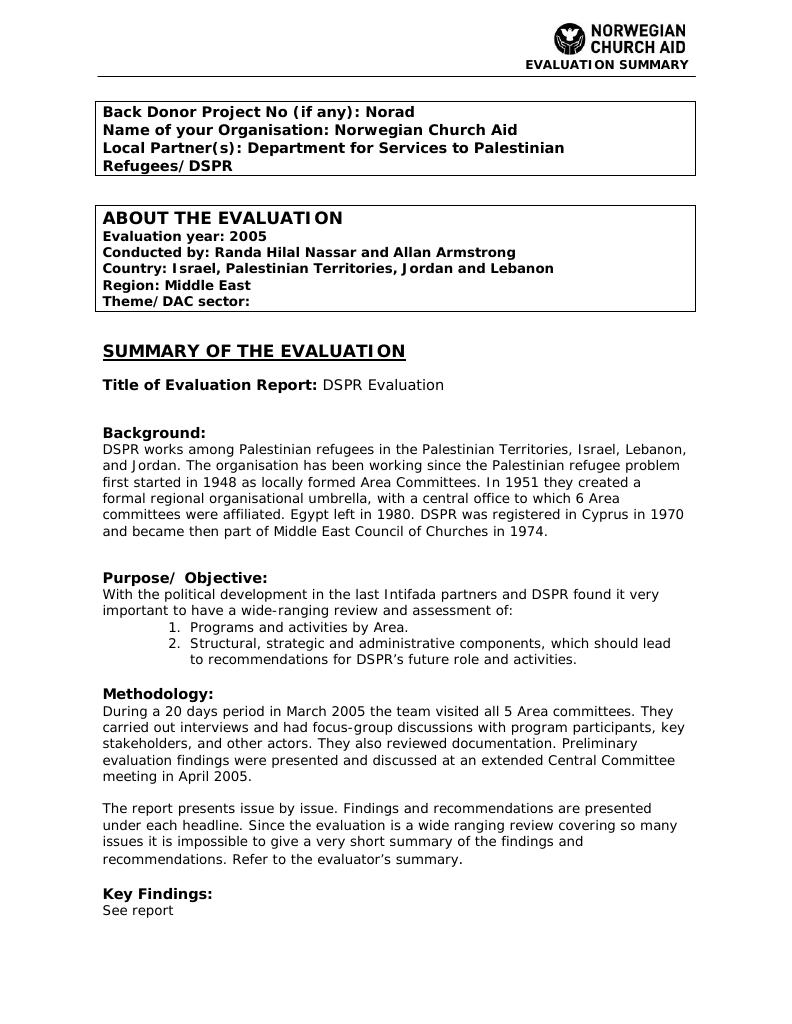Evaluering
DSPR Evaluation
Background Countries: Israel, Palestinian Territories, Jordan and Lebanon. DSPR works among Palestinian refugees in the Palestinian Territories, Israel, Lebanon, and Jordan. The organisation has been working since the Palestinian refugee problem first started in 1948 as locally formed Area Committees. In 1951 they created a formal regional organisational umbrella, with a central office to which 6 Area committees were affiliated. Egypt left in 1980. DSPR was registered in Cyprus in 1970 and became then part of Middle East Council of Churches in 1974. Purpose/objective With the political development in the last Intifada partners and DSPR found it veryimportant to have a wide-ranging review and assessment of:1. Programs and activities by Area.2. Structural, strategic and administrative components, which should leadto recommendations for DSPR's future role and activities. Methodology During a 20 days period in March 2005 the team visited all 5 Area committees. They carried out interviews and had focus-group discussions with program participants, key stakeholders, and other actors. They also reviewed documentation. Preliminary evaluation findings were presented and discussed at an extended Central Committee meeting in April 2005. The report presents issue by issue. Findings and recommendations are presentedunder each headline. Since the evaluation is a wide ranging review covering so many issues it is impossible to give a very short summary of the findings andrecommendations. Refer to the evaluator's summary. Key findings See report. Recommendations See report. Comments from the organisation NCA has been lead agency among the partners to DSPR and was involved informulating the terms of reference/TOR. We also participated in the presentation ofthe findings to the Central Committee in April. Each Area Committee has used thereport in their next 3 year plan and has made a number of changes in their program. Main focus has been on concentration and a clearer focus.
